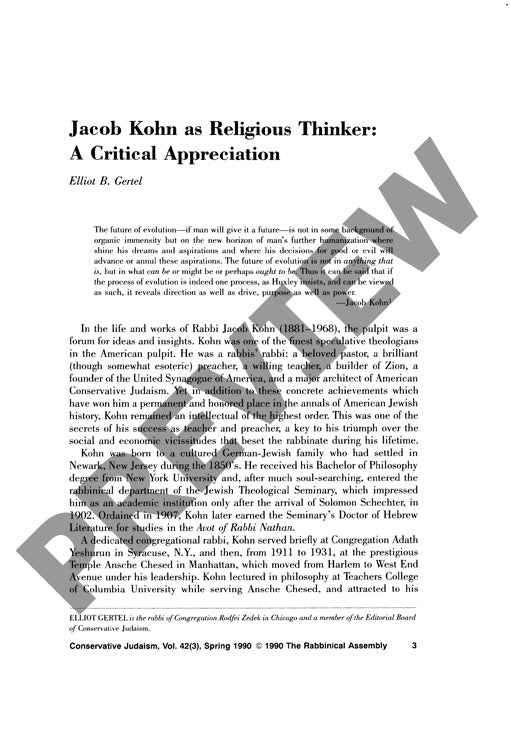Jacob Kohn as Religious Thinker a Critic
Couldn't load pickup availability
Rabbi Jacob Kohn (1881-1968) crafted one of American Conservative Judaism's most ambitious attempts to reconcile scientific and religious worldviews through a sophisticated pantheistic theology. Drawing on Samuel Alexander's philosophy, Kohn developed a distinctive theological framework that merged evolutionary doctrine with Biblical-Rabbinic concepts in his seminal works "The Moral Life of Man" (1956) and "Evolution as Revelation" (1963). Systematic analysis of these texts reveals Kohn's innovative conception of God as immanent creative spontaneity encompassing all existence, coupled with a moral Darwinism that emphasized survival through ethical obligation rather than physical fitness. His theological positions on the rationality of the world, prayer, morality, and concepts of time, space, and causality offered intellectually rigorous responses to modern skepticism while maintaining classical theological vocabulary and Jewish ritual significance. Though Kohn's framework provides brilliant insights into freedom, history, and redemption, it exhibits notable weaknesses in addressing revelation, moral authority, and the problem of evil. His reduction of Divine attributes to philosophical constructs ultimately diminishes their traditional theological force, even as his rational defense of faith represents a unique contribution to Jewish thought.

More Information
-
Physical Description
-
Publication Information
Published 1990
ISBN
-
Publication Credits
Elliot Gertel

